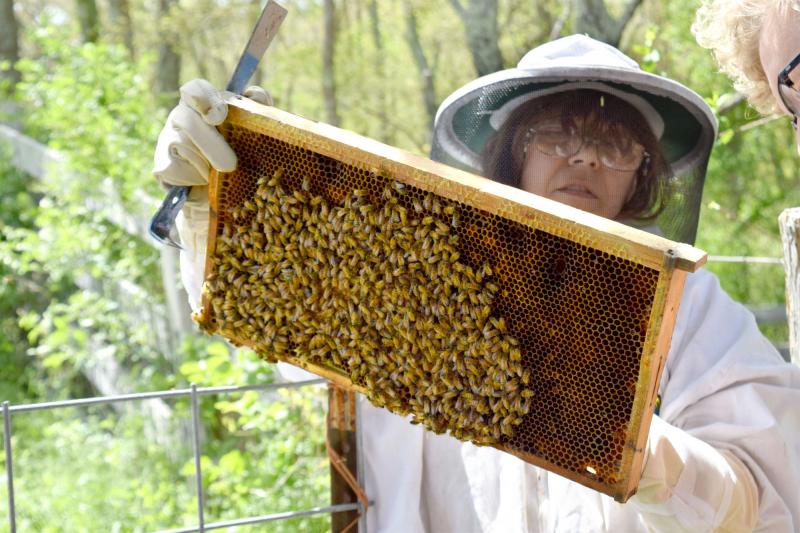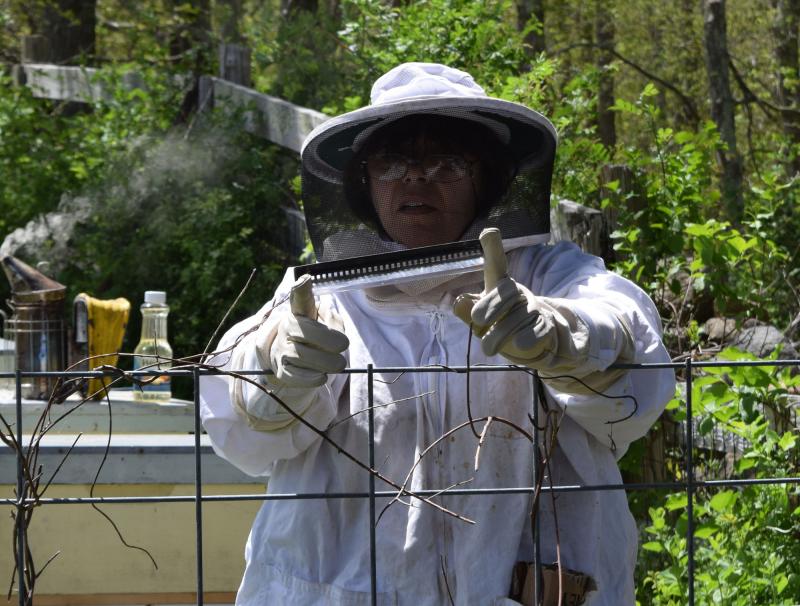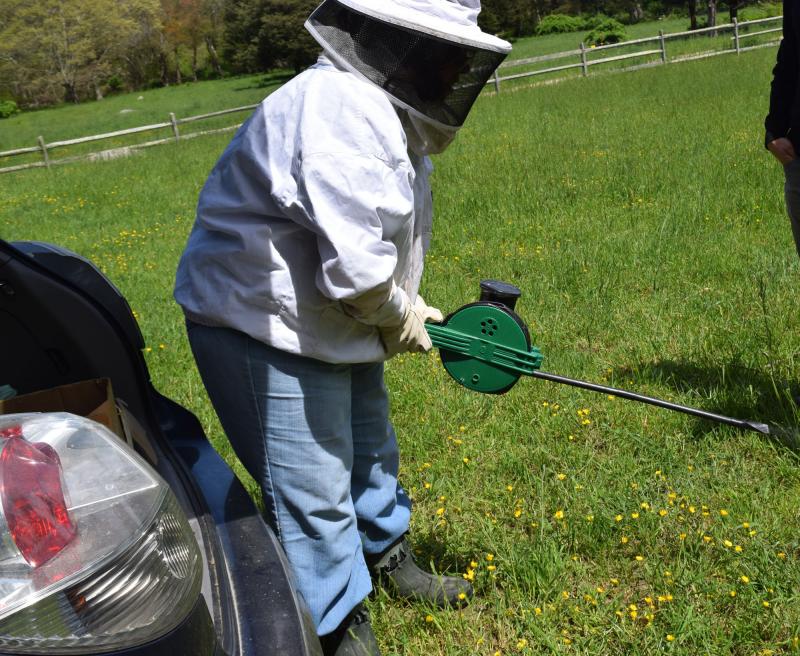Veteran beekeeper explains why the hobby is getting pricier
For veteran beekeeper Lucy Tabit, raising thousands of honey-producing bees is becoming more challenging every year.
As part of Round the Bend Farm’s Open Farm Day, the long-time beekeeper let guests close to, but not inside, her brand new honeybee colonies. Her latest colony is still too young to harvest honey from. Tabit was forced to replace her former colony after her hives all failed to survive the cold winter season.
“Only one hive survived the winter, but last month after a cold snap, the queen failed. She stopped laying eggs.” Tabit said.
Typically, colony members will crowd together in a large ball to maintain heat and survive the winter, but that process didn’t save Tabit’s bees. Although she doesn’t know exactly why, it’s not all that uncommon now.
“It’s starting to become the norm,” Tabit said. “It’s expensive to repopulate bees every year. When I first started, more made it through the winter.”
Tabit practices integrated pest management in her colonies to protect against other natural threats. Using special inserts filled with oil, she keeps her hives free of hive beetles, which invade and destroy beehives, and she closely monitors for the presence of dangerous mites.
But the biggest threat to bee populations is something she can’t trap or treat. As pesticide use has risen, bee populations are suffering from the effects of the chemicals, Tabit explained.
She’s working with state legislators to address the issue. A bill currently on the table this year would ban the sale of neonicotinoids, a class of pesticide that enters plant nectar and is in turn passed along to honeybees.
In the meantime, Tabit has to cope with increased winter losses. After ordering a new colony, her hives at Round the Bend Farm are already home to about 40,000 bees. The bees, however, are still on a sugar syrup diet while they build up their numbers. Then, they’ll move on to honey production.
Once that happens, Tabit expects to draw anywhere from 20 to 60 pounds of honey from each of her hives. At the height of the season, boxes will need harvesting more often.
“They can fill a box in a matter of days,” Tabit said.
Her biggest tip to newbies wishing to start their own colonies is to join a local beekeeping group and take a beekeeping class. Locally, the Bristol County Beekeepers Association provides a Bee School program over the winter, so that by the spring, participants will be ready to get their first colony started.
“It’s hard work, but it’s finger-licking good,” Tabit said.

















